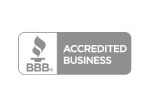Determining the right marketing budget for a law firm involves a strategic balance between achieving visible, quick results and investing in long-term growth. Whether you're leveraging advanced law firm PPC campaigns or enhancing your SEO, the key is to align your spending with your firm's size, competition level, and specific legal practice areas. This ensures optimal resource use for sustainable business growth.
What Should Be a Law Firm Marketing Budget
Typically, law firms should allocate between 2% and 10% of their annual gross revenues to marketing. This range varies with the firm’s size, competitive environment, and specific growth objectives. Smaller or new practices might start at the lower end to build a presence, while well-established firms in competitive markets might invest at the higher end to maintain or expand their market share. This method ensures the marketing spend is proportional to expected revenues, optimizing both expenditure and returns.
For a more concrete example, consider a law firm with a yearly revenue of $1 million. Applying the recommended percentage range:
- At the lower end (2%), the firm would allocate $20,000 per year to marketing.
- At the higher end (10%), the budget would be $100,000 per year.
This budget should cover various marketing activities such as digital advertising, content marketing, SEO, email marketing, and traditional advertising methods. Larger or more competitive practices might lean towards the higher end to dominate competitive markets or launch extensive new campaigns. Conversely, smaller firms or those in less competitive areas might find the lower end of the range sufficient to meet their marketing goals effectively. This approach ensures that the marketing spend is proportional to the firm's size and revenue, optimizing the return on investment.
Marketing Strategies and Channels
Pay Per Click Advertising (PPC)

Effective budgeting for PPC advertising is crucial for law firms due to the potentially high returns it can offer when properly managed. Given the competitive nature of legal keywords of Google ads, average CPC (Cost Per Click) rates for law-related searches are among the highest, ranging from $80 to $300 or more per click. Depending on the keyword and location, it can go up to three figures per click. This high cost reflects the lucrative nature of legal leads, where acquiring a single new client can significantly offset the initial ad spend.
A practical monthly PPC advertising budget for a law firm or PPC for lawyers should start at around $5,000 but could escalate to $20,000 or more for firms in highly competitive practice areas or larger markets. This budget allocation allows for comprehensive coverage of various keywords and sufficient flexibility to adjust strategies based on performance metrics.
While Google ads are the more popular type of PPC advertising, several other PPC services can be valuable for reaching different audiences and achieving diverse marketing goals. Here are some of the prominent ones:
Bing Ads (Microsoft Advertising): While it has a smaller market share than Google, Bing Ads can be a cost-effective alternative with less competition and lower cost per click. It's particularly useful for reaching older demographics who use Bing more frequently.
Facebook Ads: This platform provides advanced targeting features enabling law firms to connect with precise demographics, such as age, location, interests, behaviors, and beyond. Facebook Ads excel in fostering brand recognition and establishing personalized interactions with prospective clients.
LinkedIn Ads: Given its professional context, LinkedIn is a prime advertising platform for business law firms, corporate lawyers, and B2B legal services. LinkedIn allows targeting based on job titles, industries, and seniority levels, making it ideal for precise targeting in professional fields.
Twitter Ads: These can be effective for topical and timely legal issues, allowing law firms to target based on keywords and hashtags relevant to current events or specific legal specialties. Twitter is a great platform for firms that want to establish thought leadership and stay engaged in ongoing conversations.
Instagram Ads: For law firms that handle personal legal services such as family law or personal injury, Instagram can be a valuable tool. It allows firms to connect emotionally with potential clients through compelling visuals and stories, enhancing their branding and client outreach.
Each platform offers different benefits and operates best within specific contexts or industries. Selecting the appropriate option hinges on factors like your business model, target demographic, and particular marketing objectives.
The Benefits Of PPC Ads
The benefits of PPC ads for law firms are significant. It offers the fastest route to generate leads, allowing firms to appear at the top of search engine results for relevant queries almost immediately after the PPC campaign launch. Successful PPC campaign will deliver immediate visibility is crucial for capturing high-intent potential clients who are actively seeking legal services. PPC also provides measurable ROI, with detailed analytics that track every click and conversion, allowing firms to see exactly what they are getting for their investment.
The Benefits of Using A PPC Expert
Using a PPC advertising expert or PPC management can further enhance these benefits. PPC advertising experts/ agencies specialize in keyword research, ad copywriting, A/B testing on your PPC ad campaigns, and management, ensuring your law firm's PPC campaigns are finely tuned to target the most relevant audience. They also stay abreast of the latest search engine updates and best practices, which can significantly improve PPC ad campaign performance and reduce the wastage of PPC ad spend.
An expert can optimize the cost-per-click and increase conversion rates by strategically adjusting bids, refining targeting, and continually optimizing ad creatives and landing pages. Conduct A/B testing on your PPC ad campaigns, such as comparing video ads to image ads to determine which type performs better. This level of specialized attention helps law firms maximize the impact of their PPC investments, driving better-quality leads and more efficient conversions.
Search Engine Optimization

Aside from doing PPC ads, law firms should also consider SEO. On average, law firms should consider spending between $2,000 to $10,000 per month on their SEO efforts. This budget range accommodates varying firm sizes and market competitiveness, ensuring that SEO strategies such as keyword optimization, content creation, and technical website improvements are effectively implemented.
However, keep in mind that SEO can take some time to "kick in" and that search engine results pages can vary widely depending on several factors, including the industry's competitiveness, the current state of your law firm's website, the strategies implemented, and the consistency of effort put into SEO activities.
Generally, you might start seeing initial improvements within a few months, but it usually takes about six months to a year to see more significant and sustainable search engine results. Here’s why:
Indexing: Search engines like Google need time to crawl and index new content or changes on existing websites. This process doesn't happen instantly.
Content Maturity: Newly published content often gains more value and trust over time as it attracts backlinks and traffic, which are critical factors in SEO.
Competition and Relevant Keywords: Highly competitive sectors or relevant keywords require more sustained and intense SEO efforts to rank well compared to less competitive ones.
SEO Adjustments and Algorithms: SEO requires ongoing attention and adaptation; it's not a set-it-and-forget-it type of strategy. It requires ongoing adjustments based on analytics and changes in search engine algorithms, which can also affect how quickly you see results.
It is important to maintain realistic expectations and view SEO as a long-term investment. Sustained effort and iterative adjustments guided by performance analytics are essential for achieving lasting success in SEO. If an SEO expert guarantees quick rankings within a short period, consider it a red flag. Achieving effective and ethical SEO results requires patience, given the intricacies of search engine algorithms and the competitive landscape of organic search. Instant results may involve risky tactics that could ultimately harm your site's standing with search engines.
The Benefits of SEO
The benefits of SEO for law firms are substantial. SEO helps build long-term online authority and trust by improving the firm’s ranking on search engines for relevant keywords. This leads to increased organic traffic and higher quality leads, as potential clients tend to trust organic search results over paid PPC ads. Moreover, effective SEO strategies lead to better user experiences on the website, which can significantly boost the conversion rates of visitors into clients.
The Benefits of Using An SEO Expert
Utilizing an SEO expert can maximize these benefits. SEO experts bring specialized knowledge of best practices, technical SEO, content creation, and algorithm updates that can significantly affect a law firm’s search engine rankings. Their expertise ensures that SEO efforts are compliant with the latest search engine guidelines and optimized for the most effective performance.
In contrast to PPC, which focuses on immediate results by paying for site visibility, SEO is a longer-term strategy that builds visibility organically. While PPC offers quick visibility and results, SEO builds a sustainable foundation that can yield a continuous return over time, making it a crucial investment for any law firm serious about online growth and visibility.
Content Marketing

Typically, a law firm should allocate between $2,000 and $10,000 per month to content marketing. This budget allows for the creation of diverse content types, including blog posts, articles, infographics, and videos, tailored to the firm's specific areas of practice and client interests.
When it comes to content marketing investment, the focus should not solely be on volume but also on the significance and appropriateness of the content. These aspects play a pivotal role in captivating potential clients and enhancing SEO effectiveness. For firms in highly competitive markets or those with specialized practice areas, leaning towards the higher end of this budget range can be particularly beneficial. This ensures the content is rich, informative, and optimized for search engines, thereby increasing the firm's online visibility and credibility.
Effective content marketing requires a strategic approach, continuous optimization based on analytics, and adaptation to legal industry trends and client needs. Continuously dedicating effort in this manner aids in positioning the firm as an authority and reliable source within its industry.
The Benefits Of Content Marketing
Content marketing offers numerous benefits for law firms, serving as a foundational strategy to enhance visibility and authority. Law firms can solidify their position as industry thought leaders by creating informative and pertinent content, thereby fostering trust with potential clients. This type of marketing helps improve search engine rankings, driving organic traffic to the firm’s website through the strategic use of SEO practices within the content. Moreover, meticulously crafted content adds value for readers, nurturing stronger relationships and elevating the probability of engagement and referrals. Effective content marketing attracts new clients and supports retention by keeping the law firm in mind through regular communication.
Email Marketing

For law firms considering an investment in email marketing, a strategic budget range of about $1,000 to $2,500 per month is advisable. This allocation supports the development of professionally crafted newsletters, client updates, and promotional emails tailored to the firm’s services and client needs. Such a budget allows for comprehensive services, including audience segmentation, A/B testing, and performance analytics, which are vital for maximizing the effectiveness of email campaigns.
The higher end of this budget spectrum is particularly beneficial for firms aiming to expand their reach or enhance engagement through more sophisticated email marketing techniques, such as automated drip campaigns or personalization strategies that can significantly increase open and conversion rates. Regular email marketing investment helps maintain continuous contact with existing clients and efficiently drives new client acquisition by strategically targeting and nurturing potential leads.
The Benefits Of Email Marketing
Email marketing presents several key benefits for law firms, making it a vital component of their marketing strategy. It enables firms to directly engage with both existing and prospective clients, keeping them abreast of new services, legal developments, and firm accomplishments. This direct communication channel aids in nurturing relationships, thereby bolstering client loyalty and retention.
Furthermore, email marketing proves to be cost-efficient, delivering one of the most favorable returns on investment among various digital marketing tactics. It enables law firms to segment their audience and tailor messages to specific client needs and interests, increasing the relevance and effectiveness of the campaigns. By consistently engaging with their audience, law firms can maintain top-of-mind awareness, thereby fostering repeat business and encouraging referrals.
Branding and Website Development

Substantial investment in branding and website development is essential for law firms looking to enhance their market presence. Typically, law firms should budget between $5,000 and $15,000 for a comprehensive branding strategy, which includes logo design, brand identity, and strategic marketing materials. For website development, costs can range from $3,000 for a basic, functional site to over $20,000 for a custom, feature-rich website tailored to the firm's specific needs and client base.
This investment is crucial for creating a professional image that reflects the firm's values and expertise, helping to attract and retain clients. An effectively designed website serves as a digital front door, facilitating client engagement and conversion through intuitive navigation, compelling content, and robust functionality. Regular updates and refinements based on user feedback and analytics are also important to keep the website and branding aligned with evolving business goals and client expectations. Taking this proactive stance ensures the firm stays competitive and pertinent in a digital-centric environment.
The Benefits of Branding and Website Development
Investing in branding and website development offers significant advantages for law firms, enhancing both their visibility and professional image. A well-crafted brand distinguishes a law firm in a competitive market, establishing a memorable identity that resonates with clients. This process contributes to building trust and recognition, both of which are pivotal for both retaining existing clients and acquiring new ones.
Simultaneously, a robust and user-friendly website serves as a primary interaction point for potential clients. It ensures that a firm's digital presence aligns with its professional standards, improving user experience and accessibility.
Moreover, an optimized website enhances SEO efforts, increasing organic search traffic and increasing client engagement rates. Effective branding and website design thus directly contribute to a law firm's market growth and client base expansion.







